 W
WCharles Neal Ascherson is a Scottish journalist and writer. He has been described as "one of Britain's leading experts on central and eastern Europe". Ascherson is the author of several books on the history of Poland and Ukraine. His work has appeared in The Guardian and The New York Review of Books.
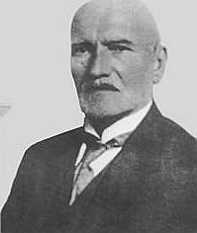 W
WOswald Marian Balzer was a Polish historian of law and statehood, one of the most renowned Polish historians of his times.
 W
WGrzegorz Berendt is a Polish historian, professor at the University of Gdańsk, member of the Institute of National Remembrance Gdańsk office, member of the Jewish Historical Institute, and deputy director of the Museum of the Second World War.
 W
WWłodzimierz Borodziej is a Polish historian and writer specializing in contemporary European history with particular focus on Polish-German relations. Borodziej is a professor of humanistic sciences, and former prorector of the Warsaw University.
 W
WGrzegorz Michał Braun is a Polish far-right politician, journalist, academic lecturer, movie director and screenwriter. He is the leader of the Confederation of the Polish Crown and one of the leaders of Confederation Liberty and Independence. He was elected to the Sejm in 2019.
 W
WIvor Norman Richard Davies is a Welsh-Polish historian known for his publications on the history of Europe, Poland and the United Kingdom. He has a special interest in Central and Eastern Europe and is UNESCO Professor at the Jagiellonian University, professor emeritus at University College London, a visiting professor at the Collège d'Europe, and an honorary fellow at St Antony's College, Oxford. He was granted Polish citizenship in 2014.
 W
WProf. dr hab. Jerzy Krzysztof Eisler is a Polish historian, focusing mostly on the history of Poland during the communist era. He is a professor at the History Institute of the Polish Academy of Sciences, and member of the Institute of National Remembrance in Warsaw. In 1994-97 he was a principal of Adam Mickiewicz Polish school in Paris. Eisler gained a title of professor in 2002 and was awarded the Silver Cross of Merit medal in 2006.
 W
WAdam Fastnacht doctor hab., historian, editor. He was a distinguished Polish historian, researcher of the history of the town and the district of Sanok Land, one of the most renowned Polish historians of his time. Fastnacht was born to a German family who settled in the east. He studied in Sanok, in Lwów at Lviv University under Franciszek Bujak and at the Jagiellonian University in Kraków, where in 1946 he received his PhD. Fastnacht was a member of the Armia Krajowa.
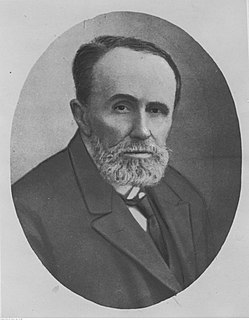 W
WLudwik Michał Emanuel Finkel was a Polish historian, and rector of the Lviv University.
 W
WAndrzej Friszke is a Polish historian and lecturer. He specializes in the history of communist Poland and the democratic opposition to the communist regime.
 W
WGallus Anonymus is the name traditionally given to the anonymous author of Gesta principum Polonorum, composed in Latin about 1115. Gallus is generally regarded as the first historian to have described Polish history. His Chronicles are an obligatory text for university courses in Poland's history. Very little is known of the author himself.
 W
WAdam Galos was a Polish historian and professor at University of Wrocław. He specialized in the history of Germany. He died, aged 88, in Wrocław.
 W
WAlexander Guagnini was an Venetian-born Polish writer, military officer, chronicler and historian of Italian heritage. He is known as a Crown Rotmistrz of Poland and Commandant of Vitebsk. Guagnini fought for the Polish–Lithuanian Commonwealth in the Livonian War and the Moldavian Magnate Wars.
 W
WProf. dr hab. Jerzy Stanisław Holzer was a Polish historian. He specialized in the Polish history, German history, and the Polish-German relations.
 W
WWitold Jakóbczyk was a Polish historian and professor at Poznań University, specializing in the history of Greater Poland in the 19th century.
 W
WPaweł Jasienica was the pen name of Leon Lech Beynar, a Polish historian, journalist, essayist and soldier.
 W
WStefan Kieniewicz was a Polish historian and university professor, notable for his works on 19th century history of Poland. During his work at various universities he became the tutor of several generations of Polish historians and his views on the last two centuries of Poland's history remain influential in modern scholarly works.
 W
WStanisław Kot was a Polish historian and politician. A native of Austria-Hungary, he was attracted to the cause of Polish independence early in life. As a professor at Jagiellonian University (1920–1933), he held a chair in the History of Culture. His principal expertise was in the politics, ideologies, education, and literature of the 16th- and 17th-century Polish–Lithuanian Commonwealth. He is particularly known for his contributions to the study of the Reformation in Poland.
 W
WAndrzej Krzysztof Kunert is a Polish historian and lecturer, specializing in the history of Polish resistance movement in World War II. Since April 2010 he is the secretary general of the Council for the Protection of Struggle and Martyrdom Sites.
 W
WEugene Francis Vincent Kusielewicz was an American historian, author, educator, and a leading spokesperson on Polish and Polish-American affairs in the United States.
 W
WGottfried Lengnich was an 18th-century historian, lawyer and politician. He became known for writing the 9-volume History of Royal Prussia and for teaching Stanisław August Poniatowski, the last king of Poland.
 W
WFranciszek Ksawery Liske was a Polish historian, a founder of the Lwów's historical school, a founder and first chairman of the Polish Historical Society, director of the Archiwum Krajowe Aktów Grodzkich i Ziemskich we Lwowie. In 1879-1880 he was Rector of the Lviv University.
 W
WPeter Oliver Loew is a German historian, translator, and scholar, specializing in the History of Poland.
 W
WCzesław Madajczyk was a Polish historian. His studies on the German occupation of Europe after 1938, and in particular on the occupation of Poland and on World War II Polish culture, are considered particularly important by the European scholarly community.
 W
WGeorge Charles Malcher also known as G.C. Malcher or Jerzy Karol Malcher was a writer, historian, and political analyst educated in the field of law at the Jagiellonian University of Kraków in the Interwar Poland. He is the author of two nominal books about the history of Poland and Polish-Soviet relations under Communist dictatorship: Poland's Politicized Army (1984), and Blank Pages, Soviet Genocide Against the Polish People (1993).
 W
WWilliam Richard Morfill FBA was Professor of Russian and the other Slavonic languages at the University of Oxford from 1900 until his death. He was the first professor of Russian in Britain, and his house in North Oxford was marked with a commemorative blue plaque by the Oxfordshire Blue Plaques Board in 2009.
 W
WProf. Andrzej Paczkowski is a Polish historian. Professor of Collegium Civitas, director of Modern History Studies in the Political Institute of Polish Academy of Sciences, member of Collegium of Institute of National Remembrance.
 W
WWładysław Pobóg-Malinowski (1899–1962) was a Polish soldier, historian and journalist. An officer of the Polish Army, he is best known as a historian and author of numerous books on modern history of Poland. His most notable work is the Modern political history of Poland published in 1956 in London. Although blacklisted by the censorship in Communist-controlled Poland, the book was clandestinely published and re-edited in Poland several times.
 W
WAntony Barry Polonsky is Emeritus Professor of Holocaust Studies at Brandeis University. He is the author of many historical works on the Holocaust, and is an expert on Polish Jewish history.
 W
WJacek Proszyk is a Polish historian and religions scholar. He specializes in the history of Jews and Protestants and in the general history of southern Poland and Czech Silesia.
 W
WHenryk Bohdan Samsonowicz is a Polish historian specializing in medieval Poland, prolific writer, and professor of the University of Warsaw. In 1989–1990, he was the minister of education in the government of prime minister Tadeusz Mazowiecki.
 W
WStanisław Smolka was a Polish historian.
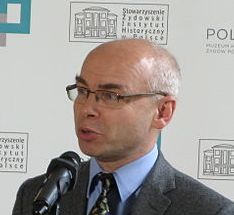 W
WDariusz Stola is a professor of history at the Institute of Political Studies of the Polish Academy of Sciences.
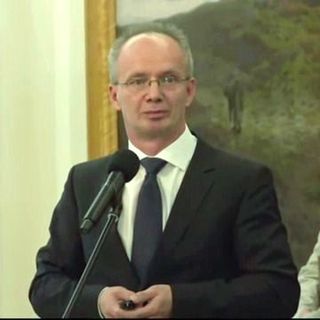 W
WKrzysztof Szwagrzyk is a Polish historian, publicist and writer, since 1979 living and working in Wrocław, Poland. Szwagrzyk received his doctoral degree in 20th-century history from the University of Wrocław in 1996. He serves as president of the Public Information Bureau of the Institute of National Remembrance regional chapter in Wrocław, and is the author of numerous scientific papers and several monographs about contemporary Polish history, with special focus on the system of political repressions during the period of Stalinism in Poland, and the anti-communist structures in Lower Silesia in the years of 1945–1956. He's the author of screenplay Golgota Wrocławska.
 W
WMaria (Marianna) Trzcińska was a Polish judge employed for over 30 years in the People's Republic of Poland at the Main Commission for the Investigation of Nazi Crimes in Poland. She investigated and researched the Nazi German World War II crimes in Poland.
 W
WBenedykt Zientara was a Polish historian.
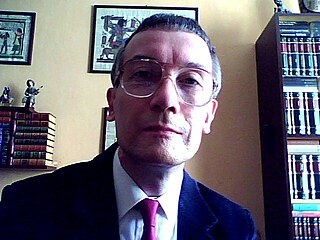 W
WMarek Żukow-Karczewski is a Polish historian, journalist, and author who specializes in the history of Poland, especially Kraków, and in the history of architecture and environmental issues. He is a descendant of the Polish noble family Karczewski and of the Russian noble family Żukow.